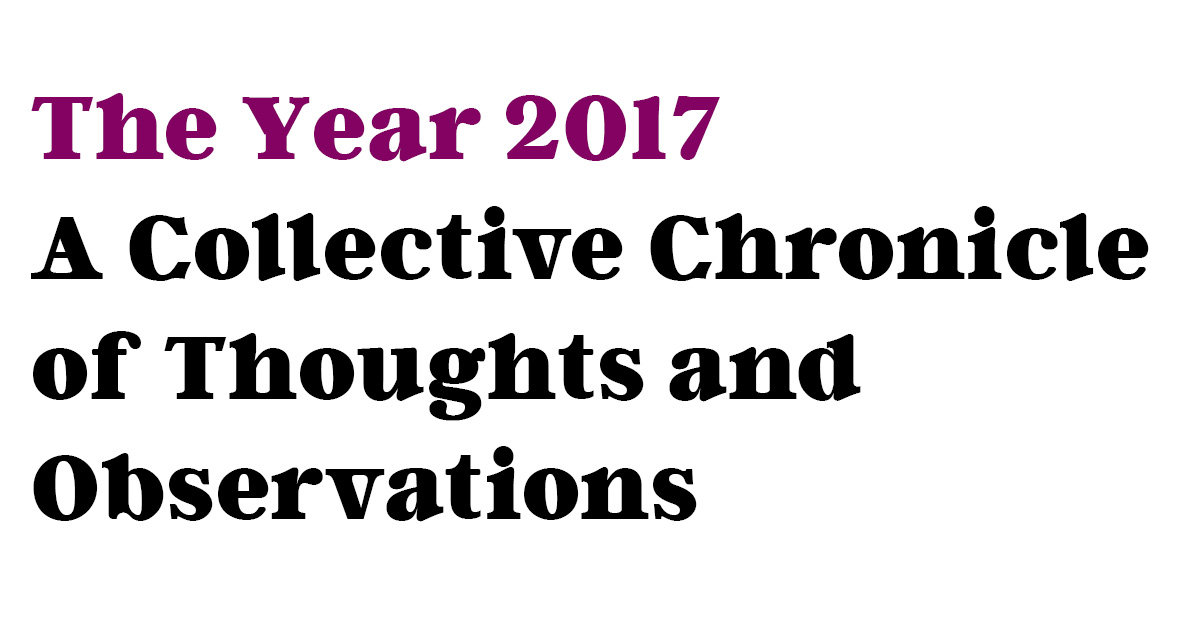FFT Düsseldorf
The Year 2017
A Collective Chronicle of Thoughts and Observations
Welcome to what is going to be a collective chronicle of the year 2017! This journal will follow the general change that we experience in our daily lives, in our cities, countries and beyond, in the political discourses and in our reflections on the role of artists and intellectuals. Originating from several talks and discussions with fellow artists and thinkers FFT feels the strong need to share thoughts and feelings about how we witness what is going on in the world. Week after week different writers, artists, thinkers and scientists will take the role of an observer as they contribute to this collective diary.
#11 March, 13th - 19th
Agnieszka Jakimiak
Dear Rainer Werner Fassbinder,
I am writing to you, though I am aware that you will never read these words for the simple reason that you are dead. Maybe I am writing to you precisely because of this.
You are no longer alive, so you cannot know where Europe is currently heading, though - as I know your movies and your writings - I can most certainly say that you saw it coming.
Today is one of this rare days that instil optimism. It is highly possible that Scotland will run the second Scottish Independence referendum, at least this is what Nicola Sturgeon is currently striving for. As far as I do not know you and as far as I could guess what you might think of this, I would claim you wouldn't be an enthusiast of this idea. I would say you could understand this pursuit as nationalistic-driven and you might be even partly right. Nevertheless, I would also say that you wouldn’t go for remain option, due to your hatred towards any idea of a nation, which I profoundly understand and deeply share. I am cheering on the Scottish Independence though, as I see there a chance for disobedience towards many nationalistic and imperialistic practices. Maybe I am wrong, though I’d rather be right. And even if you are the one who would be right, you are also the one who is dead and you basically should not care about your future. As Gertrude Stein wrote: ”It's the living that are interesting not the way of killing them.”
As I said, this day instils optimism. In the polls, Marine Le Pen is losing while Emmanuel Macron is gaining support. Yes, I am following the polls and yes, I know it is pointless and does not give any guarantee and is basically a waste of time. Although, it is not a waste of energy for me - even if Le Pen finally wins, I will have my joyful month in mind while I was so happy with the polls favouring Macron.
I suppose I am writing to you because I feel the need that somebody curbs my enthusiasm, which has never been extraordinary. It has always been so curbed that I decided to write to a dead person, who has had the greatest impact on my way of thinking, but still being a dead person.
I have to admit that I do not think it is bad that you are not able to read this words nor to give me any feedback nor to laugh them out loud. You left in a very appropriate moment - little has happened after 1982 that would cheer you up or make you less depressed.
Yours,
Agnieszka
Ljubljana, 14th March 2017
Dear Hito Steyerl,
More and more frequently I keep thinking on your work “Adorno’s Grey”, one of the most stunning pieces of artwork and one of the most baffling riddles I have ever come across. I remember images that you mention and that I have never seen: female students getting undressed during Adorno’s lecture in 1969, Adorno running away in panic, protesters approaching police line, holding books instead of weapons, layers of grey paint covered by more layers of grey paint, hiding this one layer of grey paint that Adorno wanted to environ the students so that they could concentrate and keep their minds alert. I do not know whether the stories you tell are true and I do not care. What matters is that they are all puzzling and translucent, blurred and clear, confusing and striking at the same time.
More and more frequently I catch myself thinking what could be the most effective and ineffective way of disrupting social order, of overthrowing institutional hierarchy, of shaking the habituals. And I always come back to “Adorno’s Grey”. I could not say that it contains ready solutions or provides answers for everything - on the contrary, it does not support anyone with remedies.
Again and again I read words by Adam Kleinman about your piece, just to remember what I have not seen, experienced or encountered. “Collectively, these narrative shards make no neat claim to authority, but instead require the curious spectator to pick up the pieces in this cinema-cum-classroom on his or her own terms.” - says Kleinman - “In many ways, what is presented here is not really a polished and packaged documentary, but an intentionally imperfect paradox, paralleling the disrupted drafting of Adorno’s own unfinished Aesthetic Theory, while also intimating that not only is the book incomplete, but that the entire social project at its core requires continued study and rewriting.”
Dear Hito Steyerl, I do not ask for any answers from you, but I just want to thank you for entangling me in your plot.
Yours,
Agnieszka
Ljubljana (?), 15th March 2017
Dear Isaac Brock,
I think I finally got what you meant. I started to perceive people as places as places as people as places as places as people.
I am in Ljubljana, working on a “Hitchcock” production in Mladinsko Theatre, but I am not thoroughly sure whether I am where I am.
I am in Ljubljana, but I feel like I am in Cracow, where I feel like being in Oslo, where I feel like being in Trieste, where I wish I were in London, where I miss being in Reykjavik, where I long for Auckland, where I would dream about being in Lisbon, where I think about being in Warsaw, where I want to be in Sofia, where I keep looking for the people from Sofia, who remind me of people from Ljubljana, where I remember having been in Ljubljana with people I will never see in Ljubljana again.
When I see a person in the street wearing a black coat, I wave at her and that means that I am waving at random people twenty times a day. Whenever I see a bold person with sunglasses, I wave at him, thinking this is someone I know or I preferred not to know or I had forgotten I have known. Whenever I look at a person I wonder whether it is about a person or about a city or about a bar or about a store or a music store or about a movie.
I do not think I have ever been to Zelazna Cesta, though I am crossing this street four times a day, while going to the rehearsal and back. Maybe I have never walked down Laugavegur, though I walked down Laugavegur 50 times.
When I leave Ljubljana, will I remember Ljubljana or am I going to remember myself remembering occurrences and places as people as people as places from my memory?
Will my memories preserve to be memories or are they going to be memories infected by other memories already determined by other memories?
I know the answer for the last one.
I do not know the answer for another one: Is any place in the world going to be new and unmemorised for me? Is there any place where I would not find any objects of any religious worship, any sainthoods nor inviolabilities, any constructed, preserved or fixed narratives?
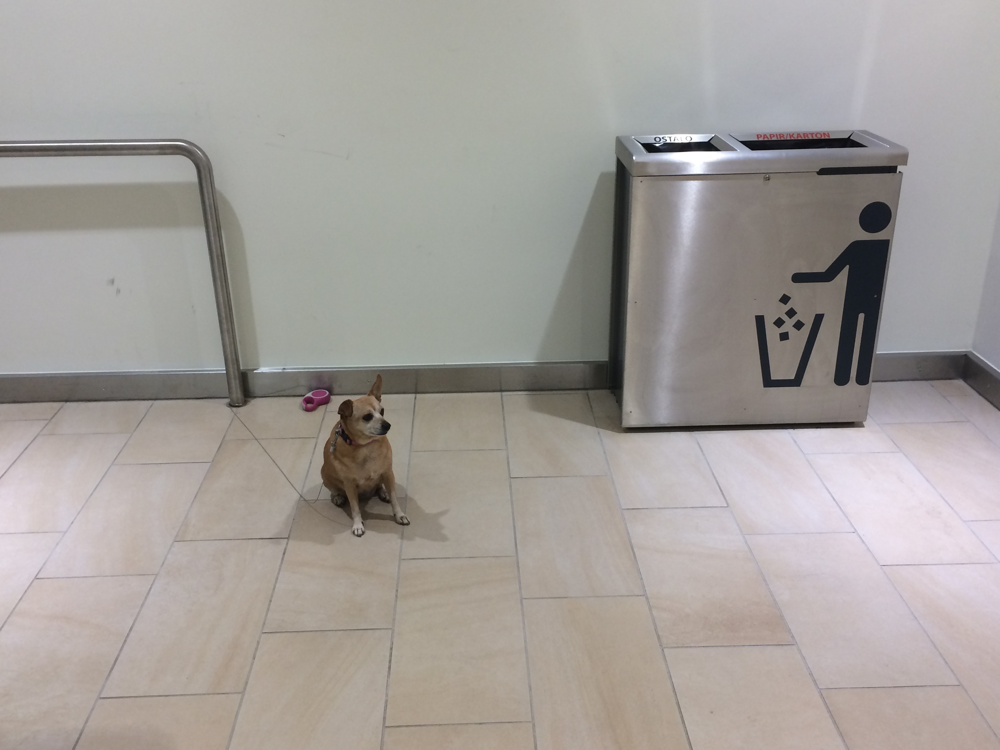
It is not a question to you, you answered this one: “To answer a question, it’ll probably take more, if you're already there, well then you probably don't know”.
Yours,
Agnieszka
Ljubljana, 16th March 2017
Dear Elisabeth LeCompte,
I am writing to you knowing that there is a little chance you will ever read this letter. Nevertheless, there are questions that I keep posing to myself and I am sure you are the one who knows the answers better than me. Obviously I could have made several assumptions and guesses basing on interviews with you - but a guess is just a guess, it leaves even more to guess.
If you ever come across this letter, maybe you might consider considering these questions and maybe you might share your replies. Maybe not, which would also be ok.
- You are always speaking about communication with The Group. How do you communicate with the others? How do you come up with a language that enables your communication with the most contemporary issues? How do you create the relationship between the outside world and your work?
- Does theatre bring you pleasure? How is it possible that you find it challenging all the time? Are you not fed up with the fact that people talk to you about theatre, pose questions about the theatre, relate to your theatre experience all the time?
- How do you cope with the fact that you are always exposed to the similar questions - about the beginning of your work, about your cooperation with Richard Schechner, Spalding Grey, Willem Dafoe and all the guys that have ever appeared in your proximity?
- Do you find following sentence: “Luminaries of the theatrical avant-garde—Richard Foreman, Robert Wilson, and Peter Sellars among them—describe her as first among equals.” offensive or flattering? I must admit I find it offensive.
- How do you make your living?
- Do you still think that your work is based rather on intuition than on intellect?
- How did you handle living with so many coworkers in one place? Have you ever had a problem with shared spaces, spending too much time together, keeping the place clean, maintaining financially?
Yours,
Agnieszka
17th March 2017
Little is to be said today, besides facts and occurrences that suddenly have laid out a new - by many unwanted - trajectory for following years in Polish culture. Two very precious theatres, run throughout last three years by progressive and open-minded managers: Teatr Polski in Bydgoszcz and Teatr Bogusławskiego in Kalisz - have lost their opportunity to move forward. As a result of open-call and apparently transparent (but if one looks deeper, not transparent at all) procedure, the current managements have to leave their positions and suspend the work they have been doing for last three seasons.
Little is to be said, besides the fact that apparently we are loosing it: artistic institutions in which we could work, common platforms of creative exchange, places of support and stages that enable risk and experiment. And whatever the reason is, in the public sphere the most prominent justification (untrue in this case) is that culture should satisfy everybody, bring income and be able to provide for itself, not to drain on public money (which is also my money as a Polish tax-payer and I might not agree that my money supports army and Catholic church, but there is little I can do about it - apart from speaking about it on a theatre stage).
After the opening of “The Curse” with Oliver Frljić in Teatr Powszechny the most common argument we heard was that art should finance itself or it should be sponsored by private fundings or individuals. It was popping up alongside the accusation of blasphemy, racist and nationalistic rhetorics (“A Croat could not have the vaguest idea of how Polish society works”; “he should be deported”; “they were so courageous to criticise Catholic church in Poland, but they lack courage to criticise Islam or Judaism and this is what one should do right now”) and hatred against actresses participating in the performance. This logical though still unexpected mashup of right-wing and neoliberal arguments walking arm in arm leaves the minority of people who think different absolutely helpless. Myself among them.
18th March 2017
Dear Mr Francesco Illy,
I am back from Trieste, where your business was founded. I must admit I have discovered this to my great surprise, I thought of Illy in the same way I think of Tchibo, Nescafe or Jacobs - I know it might sound a bit offensive, but I am not going to hide it, because, due to this discovery, I have an opportunity to ask you a question that is much more individualised than any question I would pose at Tchibo, Nescafe or Jacobs.
It has been bothering me for a really long time: why coffee in Italy is so much better and so much different than every coffee in any other country? If it is a case of coffee machines, why cafes from the whole world do not invest their money in buying Italian equipment? If it is a case of the procedure of preparing and roasting, why people simply do not learn it? How is it possible that in every Italian bar, lounge, cafe, corner, you are offered a coffee that is so unique and incomparable to any other?
I would like to ask you other questions as well - for example, if you consider Illy to be a corporation or you try to pursue your alternative way in the market, are you aware of the origin of your blends, why did you make a partnership with Coca-Cola company - but I am afraid you have no idea how to answer those. Firstly, because you are dead, secondly, because even when you were alive, people were not accustomed to knowing answers for such questions.
I attach a picture of Trieste in 2017, so that you can at least catch a glimpse of how your city is feeling nowadays.
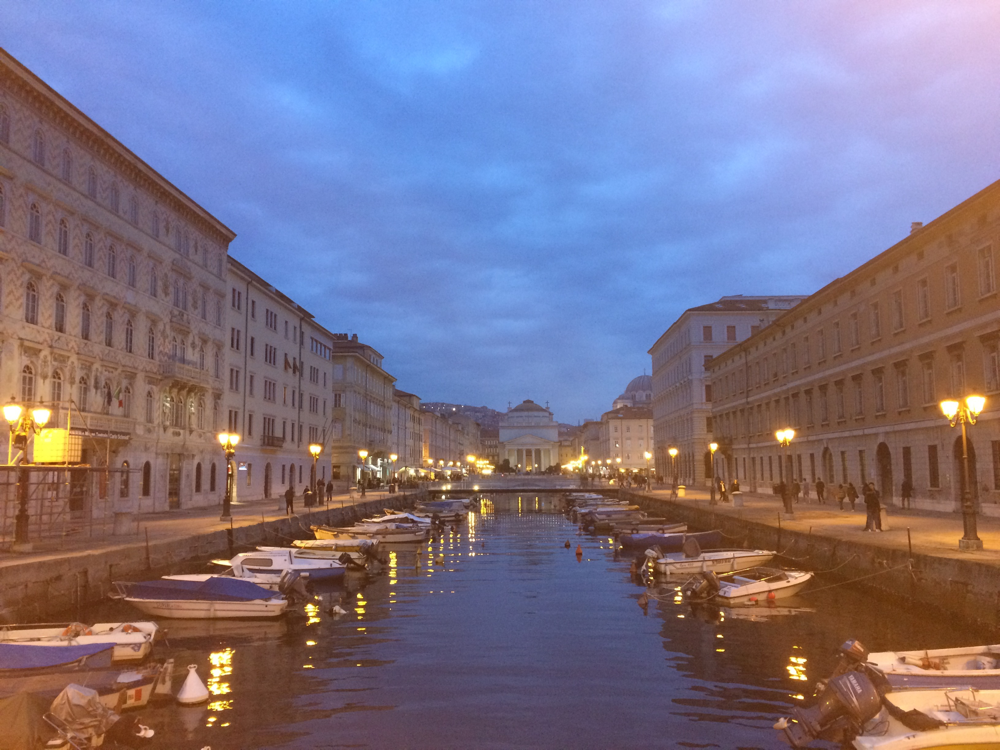
I hope you are doing well,
Agnieszka
Vitanje, 19th March 2017
Dear Sir Patrick Stewart,
I am writing to you with a discovery that I thought you might find particularly interesting. It has very much to do with your career as Charles Xavier - and yes, I watched “Logan” three times and I am aware that you are not willing to pursue your further course in X-men direction and yes, I thoroughly understand what it means when you say that “Logan” is a perfect closure for your part as Professor X (and let me add that it is not only a perfect closure, but an ingenious picture in general). Nevertheless, if you ever change your mind, I think I found an appropriate place for you to stay.
I am in Slovenia and I have just come back from an excursion to Vitanje, where Dragan Živadinov, Dunja Zupančič, and Miha Turšič with cooperation of four architectural bureaus opened The Cultural Centre of European Space Technologies. Their programme is based on the concept of the culturisation of outer space and is dedicated to cultural interactions of human beings with space.
It might sound boldly (but what do I have to loose?), but I am strongly convinced that you could use your money, connections, powers and influences, to support this initiative. I also think that you should make yourself acquainted with the work of Neue Slowenische Kunst, whose former member is Dragan Živadinov.
You can see the photos of The Cultural Centre of European Space Technologies. You must admit it looks impressive.
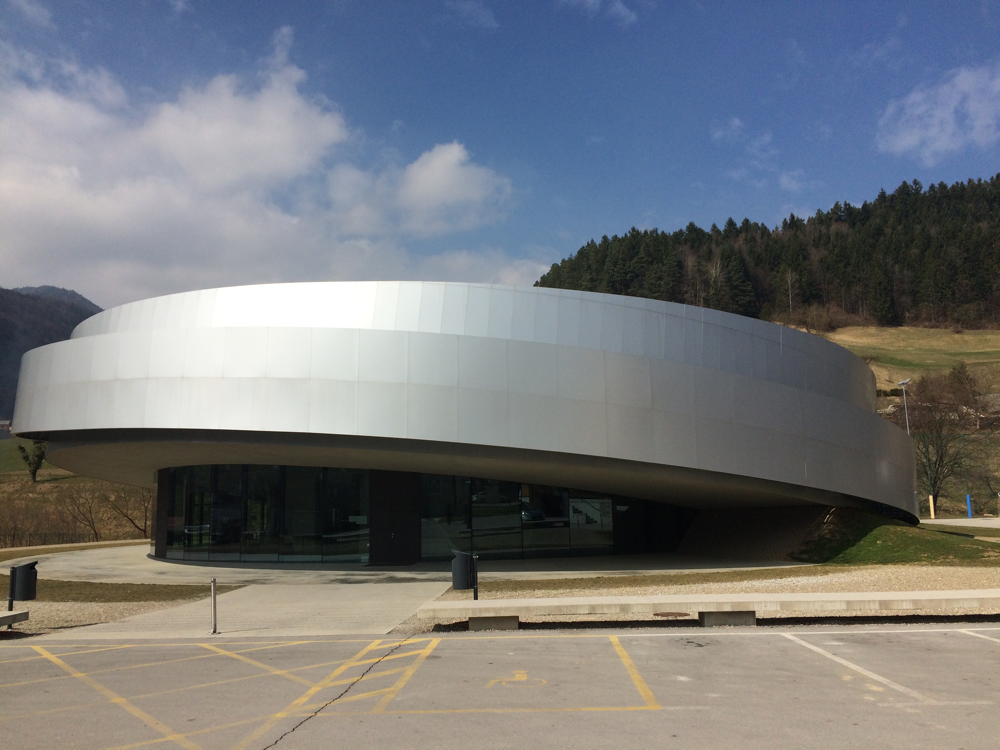
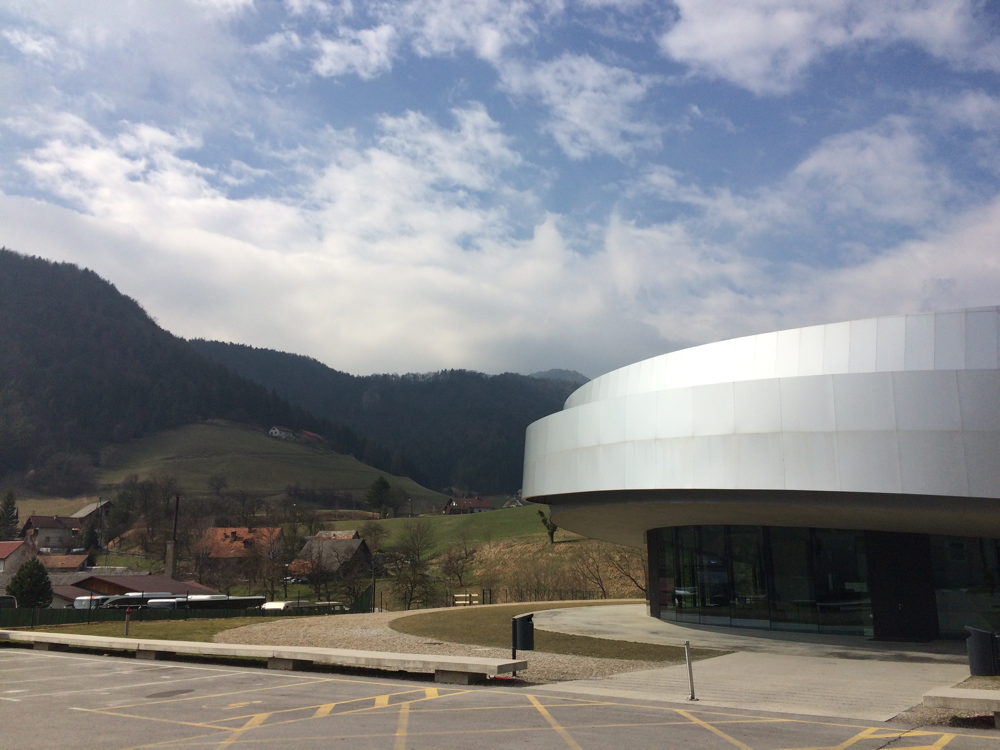
I hope you will take this into consideration.
Yours,
Agnieszka
Agnieszka Jakimiak (1987) is a dramaturg, playwright, film critic, and essayist. Collaborated with Weronika Szczawińska and Oliver Frljić. Currently she is working as a freelancer affiliated with a group of choreographers (Agata Siniarska, Agata Maszkiewicz), theoreticians and theatre curators (Marta Keil, Grzegorz Reske and Goran Injac) music composers and theatre practitioners.
#1 January 1st - 8th Jacob Wren
#2 January 9th - 15th Toshiki Okada – japanese version
#3 January 16th - 22nd Nicoleta Esinencu – romanian version
#4 January 20th - 30th Alexander Karschnia & Noah Fischer
#5 January 30th - February 6th Ariel Efraim Ashbel
#6 February 6th - 12th Laila Soliman
#7 February 13th - 19th Frank Heuel – german version
#9 February 26th - March 5th Gina Moxley
#10 March 6th - 12th Geoffroy de Lagasnerie – version française
#11 March 13th - 19th Agnieszka Jakimiak
#12 March 20th - 26th Yana Thönnes
#13 March 30th - April 2nd Geert Lovink
#14 April 3rd - 9th Monika Klengel – german version
#15 April 10th - 16th Iggy Lond Malmborg
#16 April 17th - 23rd Verena Meis – german version
#17 April 24th - 30th Jeton Neziraj
#20 May 15th - 21st Bojan Jablanovec
#21 May 22nd - 28th Veit Sprenger – german version
#22 May 29th - June 4th Segun Adefila
#23 June 5th - 11th Agata Siniarska
#25 June 19th - 25th Friederike Kretzen – german version
#26 June 26th - July 2nd Sahar Rahimi
#27 July 3rd - 9th Laura Naumann – german version
#28 July 10th - 16th Tom Mustroph – german version
#29 July 17th - 23rd Maria Sideri
#30 July 24th - 30th Joachim Brodin
#33 August 14th - 20th Amado Alfadni
#35 August 28th - September 3rd Katja Grawinkel-Claassen – german version
#38 September 18th - 24th Marcus Steinweg
#43 October 23rd - 29th Jeannette Mohr
#44 May/December Etel Adnan
#45 December 24th - 31st Bini Adamczak
#21 May 22nd - 28th Veit Sprenger – german version
10.6. #future politics No3 Not about us Without us FFT Juta
Geoffroy de Lagasnerie Die Kunst der Revolte
21.1. #future politics No1 Speak TRUTH to POWER FFT Juta
Mark Fisher
We are deeply saddened by the devastating news that Mark Fisher died on January 13th. He first visited the FFT in 2014 with his lecture „The Privatisation of Stress“ about how neoliberalism deliberately cultivated collective depression. Later in the year he returned with a video-lecture about „Reoccupying the Mainstream" in the frame of the symposium „Sichtungen III“ in which he talks about how to overcome the ideology of capitalist realism and start thinking about a new positive political project: „If we want to combat capitalist realism then we need to be able to articulate, to project an alternative realism.“ We were talking about further collaboration with him last year but it did not work out because Mark wasn’t well. His books „Capitalist Realism“ and „The Ghosts of my Life. Writings on Depression, Hauntology and Lost Future“ will continue to be a very important inspiration for our work.
Podiumsgespräch im Rahmen der Veranstaltung "Die Ästhetik des Widerstands - Zum 100. Geburtstag von Peter Weiss"
A Collective Chronicle of Thoughts and Observations ist ein Projekt im Rahmen des Bündnisses internationaler Produktionshäuser, gefördert von der Beauftragten der Bundesregierung für Kultur und Medien.

